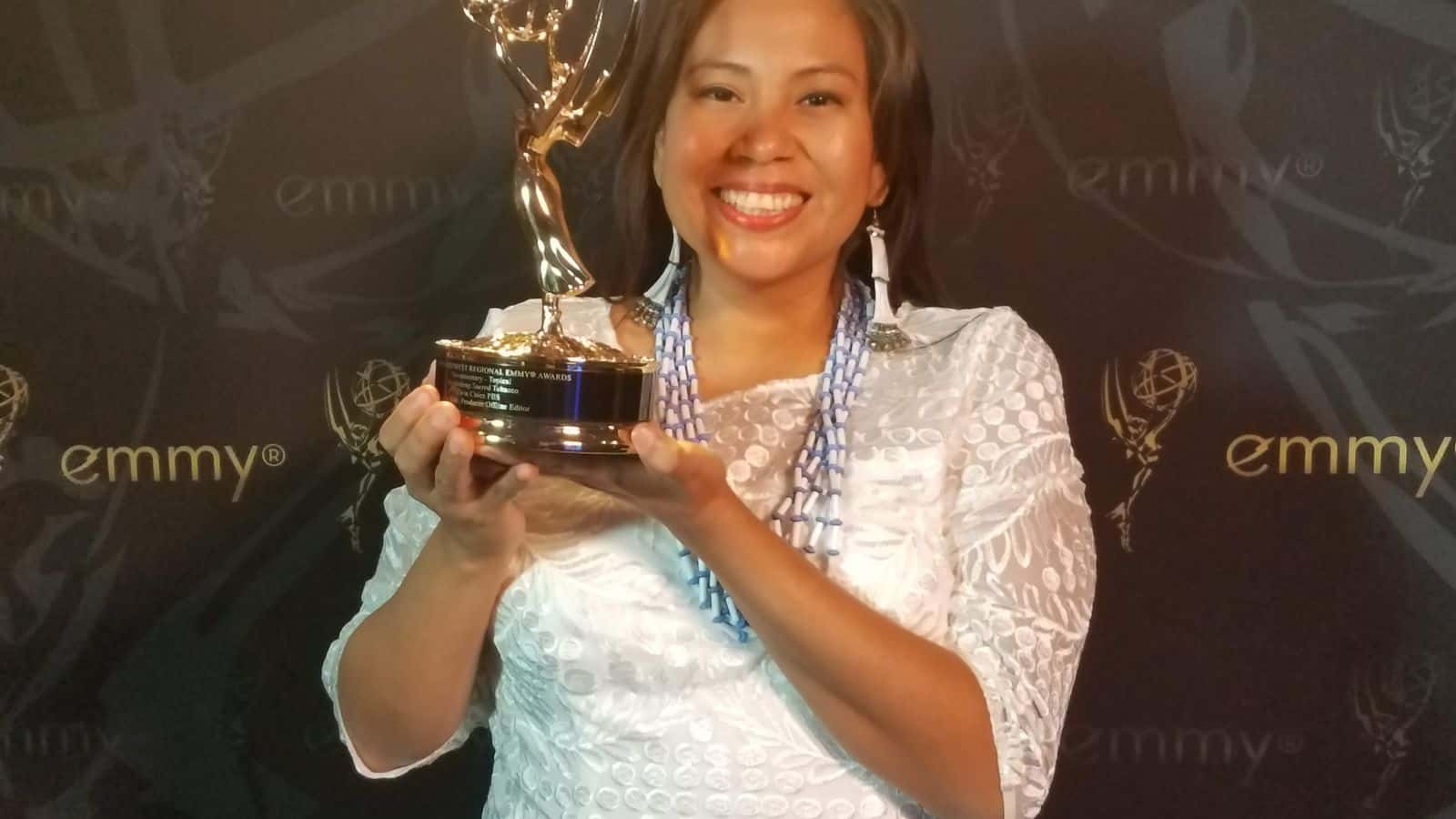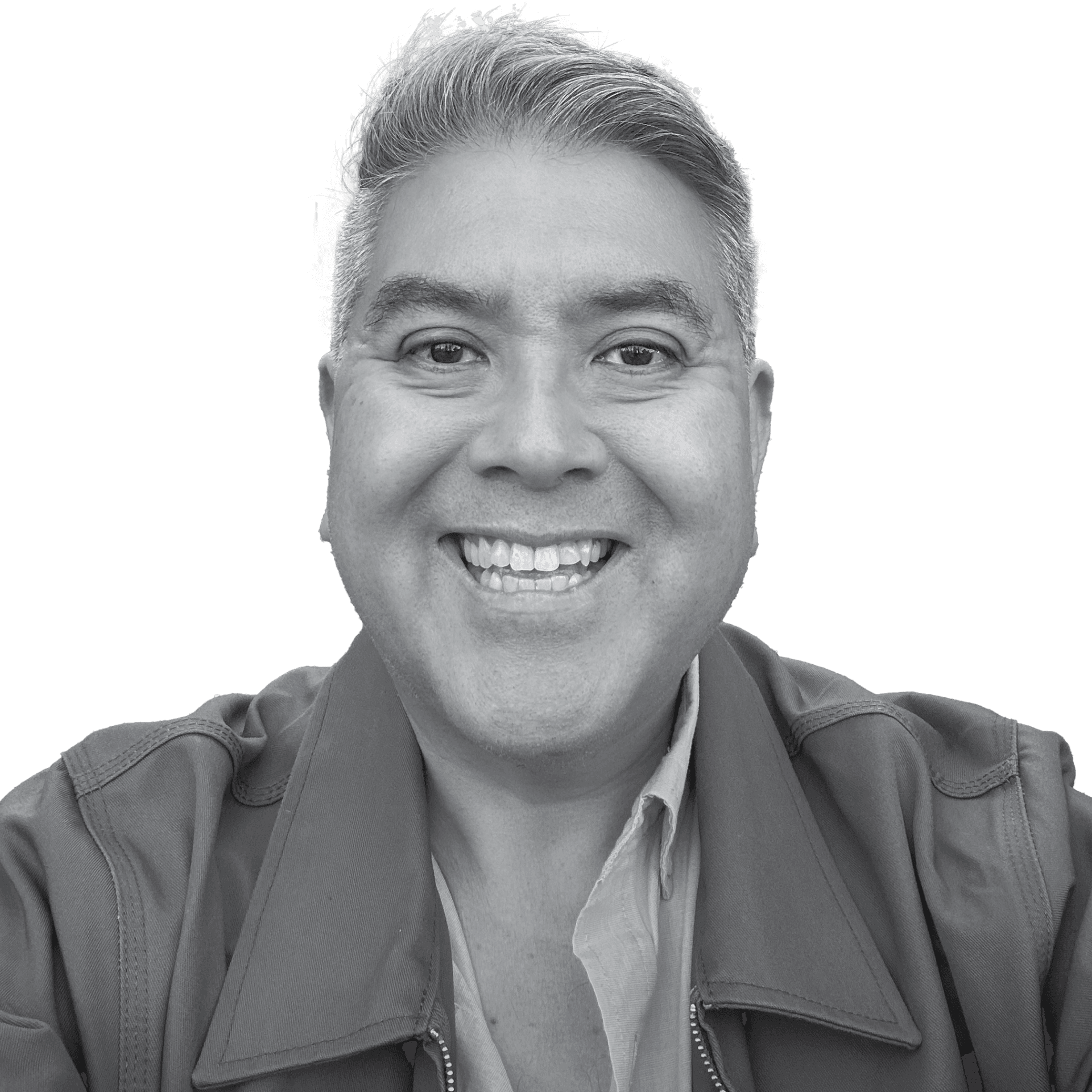Native filmmaker aims to create global network of Indigenous storytellers
Bush Fellow Leya Hale wants to expand authenticity in media arts

The Emmy-winning filmmaker and documentary producer Leya Hale has earned many accolades for her work in uplifting Native voices — including for the films “The People’s Protectors” and “Bring Her Home.” Yet the Sisseton-Wahpeton Oyate and Diné Nations artist feels she could improve in one area: technical expertise.
“When it comes to the technical things as in using the actual camera and capturing good-quality editing and things like color correcting, those are things I really want to learn more,” Hale told Buffalo’s Fire. She said this is because many young up-and-coming storytellers ask her for help on those techniques.
Hale is already juggling a lot when it comes to documentary production. She’s worked for Twin Cities PBS (TPT) for 13 years. In her current role she wears many hats, coming up with ideas, then following through with development and research work, location scouting and editing to meet her creative vision.
Hale said there’s a need for more Indigenous producers and talent to help people understand the Native perspective. “We have so many talented people already in the field, but there’s still not enough of us to really break that ceiling, to really bring Indigenous storytelling to the mainstream audiences,” she said.
She’s determined to boost their ranks. Her efforts toward this goal will get some help through her selection as a 2025 Bush Fellow, which means she’ll receive up to $150,000 over two years to achieve new goals and build on her leadership skills.
Hale said in addition to taking her technical and narrative filmmaking skills to the next level, she’ll also improve her fluency in the Dakota language and build a worldwide network of “Indigenous creatives reshaping the future of media.”
“I don’t think I can fulfill this within two years of the Bush Fellowship,” she said, “but I’m thankful the Bush Fellowship is supporting me to begin this process.”
Hale added that if not in her lifetime, maybe the next generation will use the tools she hopes to develop for them: “It’s so important. How we do stories informs how people understand us. Just as important as any field in this world. We need more of us.”
“She is somebody who I think will always be trying to authentically share her people’s stories, and that's critical,” said Sherece Lamke, Pioneer PBS president and general manager. She said she worked with Hale at TPT for seven years when Hale was a production assistant.
“I saw a lot of potential in her immediately,” recalled Lamke. “She's very much a problem solver, which is always good in a storyteller. You know, you never know what the production is gonna throw your way, and you have to be able to roll with it.”
Through the years, Hale has worked hard to produce programs with Native authenticity. When the half-hour documentary “Reclaiming Sacred Tobacco” rolled out in 2016, Hale was the director, with Lamke serving as a producer.
“She’s a good storyteller, but in whatever story she's telling, there is a genuineness there,” Lamke said. “It's a real care for the subject, which is what you need.”
Another former peer, Luke Heikkila, worked at TPT from 2004 until this summer. He met Hale on her first day in 2012, and told Buffalo’s Fire he has enjoyed seeing her talents and influence develop.
“In the time I have known Leya I have seen her grow into her voice and become a leader within her community,” said Heikkila. “She may not want to admit it, but she has become an Elder. She does not take this responsibility lightly, I see her work to change narratives, I see her work to hold up others, I see her becoming a stronger voice with each project she produces.”
Both Heikkila and Lamke believe Hale will make good on her goals as she ventures ahead with her fellowship.
“What Leya sets her mind to, Leya will achieve,” Heikkila shared in an email. “I am overjoyed to learn that Leya will have the opportunity to dive into the Dakota language. Her work under the Bush Fellowship will not only benefit her, but it will benefit everyone who sees one of her future films.”
Hale’s newest work, “Medicine Ball,” is in post-production and is scheduled for release in 2026. It looks at how basketball emerged out of boarding schools.
While Hale prepares to embark on her journey to build on her tech expertise and Dakota language skills, she is also taking time to remember her late father and role model, Benjamin Hale. The Diné citizen passed away in April, and his daughter regards him as a phenomenal storyteller who led a family dance group called the Eagle Spirit Dancers during her childhood in Los Angeles.
“I really had this experience of traveling with my family all over the southern California region, performing at educational institutions like libraries and schools,” recalled Hale. “Listening to my dad speak of our stories, our history, in a way that impacted audiences. Especially the non-Native people, he explained the beauty of our culture through song, dance and stories. I felt like I wanted to be a storyteller too, just in a different form. And that was filmmaking.”
And like her father, Hale hopes to inspire others in the Native community to share their stories with film. That could include travel to places like Canada and New Zealand.
“I want to search out individuals who have a vision like mine and learn what techniques or methods they use to Indigenize the process itself,” Hale told Buffalo’s Fire. “Making it relatable, more meaningful and impactful for Indigenous people. To really become interested and become storytellers in their communities.”

Sharing Is Caring
This article is not included in our Story Share & Care selection.
The content may only be reproduced with permission from the Indigenous Media Freedom Alliance. Please see our content sharing guidelines.
© Buffalo's Fire. All rights reserved.
Help us keep the fire burning, make a donation to Buffalo’s Fire
For everyone who cares about transparency in Native affairs: We exist to illuminate tribal government. Our work bridges the gap left by tribal-controlled media and non-Native, extractive journalism, providing the insights necessary for truly informed decision-making and a better quality of life. Because the consequences of restricted press freedom affect our communities every day, our trauma-informed reporting is rooted in a deep, firsthand expertise.
Every gift helps keep the fire burning. A monthly contribution makes the biggest impact. Cancel anytime.
Respect The Fire
At Buffalo's Fire, we value constructive dialogue that builds an informed Indian Country. To keep this space healthy, moderators will remove:
- Personal attacks, harassment, or hate speech
- Spam, misinformation, or unsolicited promotion
- Off-topic rants and excessive shouting (All Caps)
Let’s keep the fire burning with respect.






